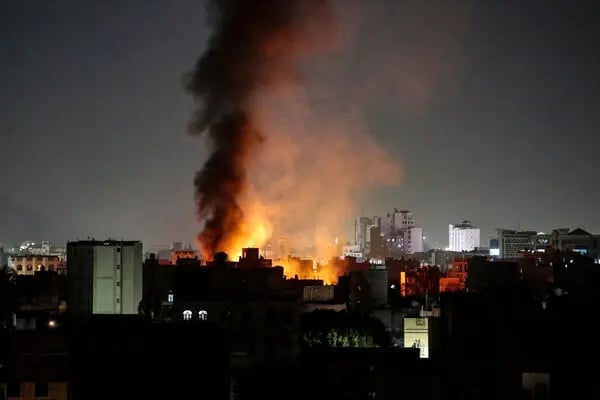Iran: Concerns About Regional Tensions Reemerge in Wake of Trump Administration's Hostile Posturing
Nearly a decade after the historic nuclear agreement between Iran and world powers, the deal is now nearing its expiry amidst heightened tensions and growing instability in the Middle East. With Iran closer than ever to acquiring the capacity to build a nuclear weapon, will diplomacy prevail or will the region spiral into open conflict?
IRANUNITED STATES
Zlata Drazdova
3/23/20253 min read


The Iran nuclear agreement, formally known as the Joint Comprehensive Plan of Action (JCPOA), was signed in July 2015 by six world powers: China, France, Germany, Russia, the United Kingdom, and the United States. Under its terms, Iran agreed to reduce its nuclear programme and allow more extensive international inspections in exchange for billions of dollars’ worth of sanctions relief. Since then, the International Atomic Energy Agency (IAEA) has overseen Iran’s compliance with the agreement.
However, the United States withdrew from the JCPOA in 2018 under President Donald Trump, who reinstated stringent economic sanctions. He described the deal as "the worst deal in history", arguing that it did too little to prevent Iran from developing a nuclear weapon. In response, Iran began to increasingly violate the terms of the agreement, particularly the provisions concerning uranium enrichment. Although enriched uranium can be used for civilian nuclear energy, it can also be refined further to produce nuclear weapons.
Recently, the IAEA reported that Iran has amassed nearly 275 kilograms of uranium enriched to 60 percent purity, a level dangerously close to weapons-grade material. If enriched to 90 percent, this stockpile could theoretically be sufficient to produce six nuclear bombs. In response, both the United States and Israel have reiterated their determination to prevent Iran from acquiring nuclear weapons capability.
Simultaneously, Iran faces profound economic hardship as a result of ongoing Western sanctions, along with widespread domestic unrest due to social and economic grievances. Nonetheless, Iranian officials maintain that their nuclear programme is entirely peaceful in nature.
Despite this, Donald Trump has reaffirmed his determination to block Iranian nuclear ambitions. In an interview on Friday, 7 March, he remarked: "There are two ways Iran can be handled: militarily, or you make a deal. I would prefer to make a deal, because I am not looking to hurt Iran. They are great people." He added, "I have written them a letter saying, 'I hope you are going to negotiate,' because if we have to go in militarily, it is going to be a terrible thing for them."
On 12 March, a letter from President Trump was delivered to Tehran by an official from the United Arab Emirates. Although Supreme Leader Ayatollah Ali Khamenei claimed not to have read the letter, he dismissed it as a "deception of public opinion". Referring to Trump's decision to abandon the 2015 nuclear deal during his previous term, Khamenei questioned the value of renewed negotiations: "When we know they will not honour it, what is the point of negotiating?" He further warned that Iran would retaliate if its nuclear facilities were attacked: "Iran is not seeking war, but if the Americans or their agents take a wrong step, our response will be decisive and certain, and the one who will suffer the most harm is America."
The regional situation has further deteriorated with the involvement of the Houthis, a Yemeni group aligned with Iran. Last week, the Houthis threatened to resume attacks on Israeli shipping in response to Israel’s blockade on Palestinian territories. This prompted the first United States military strikes on Yemen since Trump returned to office in January. In a statement posted on Truth Social, Trump wrote: "To all Houthi terrorists, your time is up, and your attacks must stop, starting today. If they do not, hell will rain down upon you like nothing you have ever seen before!" He also addressed Iran directly, declaring: "America will hold you fully accountable, and we will not be nice about it!"
On Saturday, 15 March, the United States launched a new military offensive, vowing to apply intense force until the Houthis cease attacks on critical shipping routes in the Red Sea and Gulf of Aden. The large-scale strikes targeted Houthi command centres, training sites, weapons facilities, and senior leadership positions. According to the Houthi-run health ministry, the strikes resulted in 53 deaths and nearly 100 injuries.
The current situation between the United States and Iran is marked by escalating tensions driven by nuclear concerns, military confrontations, and deep-rooted mistrust. The combination of increasing uranium stockpiles, renewed American warnings, and expanding conflict involving regional proxies presents the real danger of confrontation. As the nuclear agreement approaches its expiration and the possibility of conflict increases, the coming weeks may determine whether diplomacy can prevail or whether the region edges closer to nuclear war.


